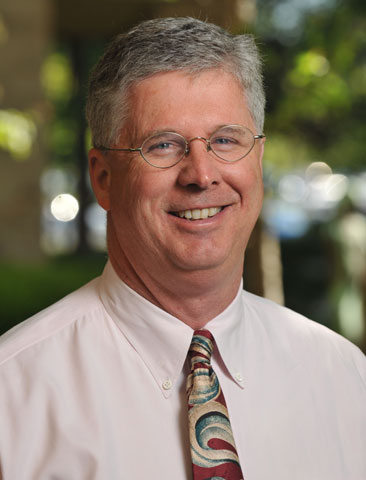
In January 2007 Catholic Charities USA launched an ambitious campaign to cut U.S. poverty in half by 2020.
The Great Recession of 2008-2009 threw up a major roadblock that continues today, with very modest U.S. and global economic recovery skewing all forecasts on rates of poverty to moderate improvements at best.
Undaunted, Catholic Charities focused on creative solutions to poverty Sept. 21-22 with its second annual Poverty Summit at Washington's Marriott Wardman Park Hotel. Many of the solutions focused on linking traditional poverty alleviation efforts by charitable or governmental organizations with innovative solutions, some involving private enterprise.
The current state of affairs, with some 46 million Americans below the poverty line, is a dire situation for the world's wealthiest nation, speakers told about 150 Poverty Summit participants.
"We have 12 states plus the District of Columbia where more than a quarter of the children are poor," said Deborah Weinstein, executive director of the Coalition on Human Needs.
Many of those children "will overcome everything -- children are miracles -- but many will not," she said. "We cannot leave 46 million people behind."
Peter Edelman, a Georgetown University law professor and co-director of its Center on Poverty, Inequality and Public Policy, reminded participants, composed almost entirely of leaders in community organization, social services and Catholic Charities operations, that "without you, the people in this country would be a lot worse off."
But government policies also play a significant role in alleviating poverty, he said.
"We're keeping 40 million people out of poverty by public policy," he said, noting that "without Social Security, food stamps" and other government programs, the current 46 million Americans in poverty "would almost double."
"When we talk about inequality now, it's not just a matter of the way the cookie crumbles," he said. He added that those in top income brackets who won deregulation of financial institutions and other policies favoring the very rich "actively hurt people. ... Mostly they knew full well that they were robbing people at the bottom of their assets."
Edelman sharply attacked the policies that have contributed to a growing disparity between the very rich and middle- and lower-income Americans.
"Our country is in danger, our democracy is in danger. We can't have these disparities. ... This is not just about poverty, it's about our country," he said.
In the Poverty Summit's opening session, Andrea Levere, president of the Corporation for Enterprise Development, urged participants to "connect antipoverty programs with asset building."
"It's not just what you earn, it's what you own" that can lead individuals and families out of poverty, she said.
The question of asset poverty asks: "Does a person have enough to live at poverty level for three months" if he or she suddenly faces unemployment or other loss of current income?
While nearly 15 percent of Americans are now living in poverty in terms of their current actual income, Levere said, "43 percent of Americans are in liquid asset poverty" -- on the verge of falling below the poverty line within three months if they lose their job.
"If we don't address financial security" for those vulnerable Americans, all the other things charitable and social service agencies do will not make a long-term difference, she said.
"We've learned a lot since last year's summit" before the Catholic Charities national convention in Fort Worth, Texas, said Fr. Larry Snyder, the organization's president and CEO.
Catholic Charities and other social service agencies across the country will continue, "as we must," to try to meet the immediate needs of those in need, he said. "But if we truly want to make a difference, we cannot be satisfied with the status quo any longer."
Americans living in poverty have been "pushed to the corners of society, their voices muffled," he said. "We must act as their voice."
William Evans, an economics professor at the University of Notre Dame, informed participants of a partnership Notre Dame has entered into with Catholic Charities agencies to assess the effectiveness of various programs and -- he didn't use the term, but it best expresses what they're doing -- increase the bang for the buck of what they do.
Most social service providers face two major tasks, he said: meeting clients' immediate needs and, with increased emphasis in recent years, changing "the trajectory of these people's lives" to help them out of the cycle of poverty.
Social service agencies are increasingly asking how well their programs are helping people change their lives, he said, but with their focus on actual assistance, most lack the resources or expertise for academically acceptable objective analyses of how effective their programs are.
Evans said Notre Dame researchers have recently kicked off six such program analyses with local Catholic Charities providers to help determine the effectiveness of innovative antipoverty programs.
In a closing address, E.J. Dionne, a noted Washington Post columnist and professor at Georgetown University (see story), urged participants to try to "change the conversation" in current political discussions "to make it easier to talk about the poor."
Directly challenging Republican presidential candidate Mitt Romney's characterization of 47 percent of Americans as perceiving themselves as victims, dependent on the government, and unwilling to take responsibility for their own lives, Dionne said, "The vast majority of the poor work ... very hard. They are people who take responsibility."
"This is not a lazy country," he said. Government benefits help people facing real hardship and help them raise themselves out of poverty, and persistent poverty is an "economic waste" in American society, he said.
[Jerry Filteau is NCR Washington correspondent. His email is jfilteau@ncronline.org.]



